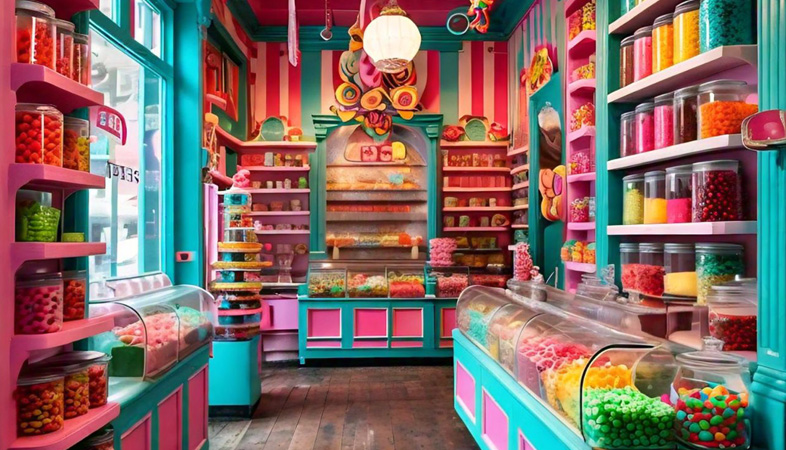Building a Sustainable Catering Business: Long-Term Strategies for Success
By focusing on seasonal and organic produce, caterers can offer fresh, high-quality meals while minimizing the environmental impact of their food sourcing.
In an era where sustainability is becoming increasingly
important, catering businesses are recognizing the need to adopt
environmentally friendly practices that not only benefit the planet but also
enhance their reputation and profitability. Building a sustainable catering
business involves implementing long-term strategies that align with ecological
principles while meeting customer expectations. Here are some effective strategies
to ensure the success of a sustainable catering operation.
One of the foundational elements of a sustainable catering business is sourcing ingredients responsibly. Partnering with local farms and suppliers reduces the carbon footprint associated with transportation while supporting the local economy. By focusing on seasonal and organic produce, caterers can offer fresh, high-quality meals while minimizing the environmental impact of their food sourcing. Additionally, transparent sourcing practices can resonate with environmentally conscious consumers, enhancing your brand’s credibility and appeal.
Implementing a waste reduction strategy is another critical aspect of sustainability in catering. Monitoring inventory closely to minimize food waste is essential. This can be achieved by carefully planning menus based on guest counts and dietary preferences. Leftover food can be repurposed creatively, donated to local food banks, or composted to reduce landfill contributions. Educating staff about portion control and waste management practices ensures that everyone is aligned with the sustainability goals of the business.
Sustainable packaging is also a vital consideration for catering services. Utilizing eco-friendly materials such as biodegradable containers, compostable cutlery, and reusable serving dishes can significantly reduce the environmental impact of your operations. When planning events, consider how to minimize single-use plastics and encourage clients to embrace sustainable practices, such as providing digital menus instead of printed ones.
Additionally, catering businesses can focus on energy efficiency within their operations. Investing in energy-efficient kitchen equipment can lead to significant cost savings over time while reducing energy consumption. Implementing practices such as batch cooking, which uses energy more efficiently, can further enhance sustainability efforts. Moreover, when hosting events, catering companies can encourage clients to choose venues that prioritize sustainability, such as those with energy-efficient systems or green certifications.
Engaging staff in sustainability initiatives is crucial for fostering a culture of environmental responsibility. Training employees on sustainable practices not only enhances their skills but also empowers them to contribute to the company's goals. Regular team meetings can be held to brainstorm new sustainability ideas and track progress on initiatives. Recognizing and rewarding staff for their contributions to sustainability can further motivate them to embrace these practices.
Customer education plays a significant role in building a sustainable catering business. As consumers become more aware of environmental issues, they seek out caterers that align with their values. By promoting your sustainable practices through marketing efforts, social media, and client communication, you can attract a dedicated client base that prioritizes eco-friendly options. Sharing stories about your sourcing methods, waste reduction efforts, and community involvement can create a strong emotional connection with clients, encouraging them to choose your services.
Partnerships with local organizations, nonprofits, and sustainability-focused groups can also enhance your catering business's reputation and outreach. Collaborating on community events, workshops, or initiatives can increase visibility and show your commitment to sustainability. This not only builds goodwill but can also lead to new client opportunities through referrals and word-of-mouth.
Incorporating sustainability into your business model can also provide a competitive advantage. Many consumers are willing to pay a premium for services that prioritize environmental responsibility. By clearly communicating your sustainable practices and the positive impact they have on the community and environment, you can differentiate your catering business from competitors.
Monitoring and evaluating your sustainability initiatives regularly is essential for long-term success. Establishing clear goals and metrics allows you to track progress and make necessary adjustments. Conducting periodic assessments of your practices can reveal areas for improvement and ensure that you remain aligned with your sustainability objectives.
The building a sustainable catering business requires a multifaceted approach that encompasses responsible sourcing, waste reduction, energy efficiency, staff engagement, customer education, and community involvement. By integrating sustainability into the core values of your catering operation, you can not only meet the demands of environmentally conscious consumers but also contribute positively to the planet. As sustainability continues to shape the catering landscape, adopting these long-term strategies will position your business for success in a competitive market while fostering a legacy of environmental stewardship.
.png)





















.jpeg)







